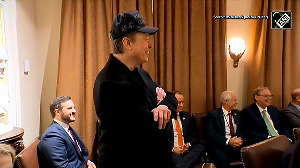 The emergence of e-commerce as a preferred platform for shopping has forced brands to build e-commerce sites. However, such initiatives are yet to gain scale.
The emergence of e-commerce as a preferred platform for shopping has forced brands to build e-commerce sites. However, such initiatives are yet to gain scale.
The reasons for this are several. A senior executive of a consumer electronics firm operating its own e-commerce portal for a few months said e-commerce marketplaces offered consumers the option to compare similar products from other brands, but this wasn't the case with company-owned portals.
"Also, online is just a very small portion of our total sales. As we need to stick to traditional sales channels, it's not possible for us to offer discounts on our site. But an e-commerce marketplace can easily offer these. And, consumers get the same product at a much cheaper price," the executive added.
Also, brand owners might not have the logistics strength of e-commerce marketplace operators, said an executive of a fast-moving consumer goods (FMCG) company.
"Even if a company starts such operations, it is likely to face difficulties in scaling up," he added.
Last year, soft drink major Coca-Cola had started Coke2Home, which sold soft drinks online and offered free deliveries to consumers' doorsteps, in Ahmedabad.
Though Hindustan Coca-Cola Beverages, the bottling arm of Coca-Cola, says Coke2Home is now present across Ahmedabad, Bangalore, Mumbai, Chennai, Hyderabad and Pune. However, market insiders say it is limited to Ahmedabad alone.
"Coke2Home is only one leg of the overall e-commerce model. We will explore other options, too. We believe we will continue to increase our reach and offerings," said a Coca-Cola spokesperson.
Globally, the company's offerings include accessories and clothing, through its online portal.
Samsung, which started an e-commerce portal a few quarters ago, hasn't seen the initiative gain scale, though the company's products are widely sold through almost all e-commerce marketplaces. A company executive said buying from a company's own site ensured after-sales service and a warranty, which would help attract consumers.
Top FMCG companies such as Dabur, Marico, Bisleri and ITC, which have already started pushing products through the online route, are gearing up to launch e-commerce portals. ITC has already started selling food products through its own website, shopping.kitchensofindia.com.
Some of its products such as Dark Fantasy (biscuits), Farmlite (biscuits), and Kitchens of India (ready-to-eat Indian dishes) will be sold through other e-commerce websites through the next few months.
Marico already sells products through Flipkart and Amazon.
Last year, Dabur had set up an online shopping portal, daburuveda.com, to sell its Uveda range of skincare products. The portal also offers a cash-on-delivery option.
Its retailing arm, NewU, also has an online channel.
Appliances and electrical products companies such as Godrej, Bajaj Electricals and Nirlep have tasted success in this segment. Godrej sells almost all its products through its e-commerce sites.
"These companies have gone aggressive to build their own e-commerce portals and have managed to push sales. These portals account for five-six per cent of their total annual revenue," says a Mumbai-based equity analyst.
The segment holds huge potential. In a study, the Associated Chambers of Commerce and Industry of India said the country's online retail market is expected to cross Rs 7,000 crore (Rs 70 billion) by 2015.
KPMG and Internet & Mobile Association of India have said India's e-commerce sector has grown 150 per cent in the past three years-from $3.8 billion in 2009 to $9.5 billion in 2012. According to their study, e-commerce will contribute four per cent to India's gross domestic product by 2020.
In a November 2013 report, equity brokerage firm CLSA said online retail in India was worth $3.1 billion, or about 10 per cent of the country's organised retail market.
The emergence of e-commerce as a preferred platform for shopping has forced brands to build e-commerce sites. However, such initiatives are yet to gain scale.
The reasons for this are several. A senior executive of a consumer electronics firm operating its own e-commerce portal for a few months said e-commerce marketplaces offered consumers the option to compare similar products from other brands, but this wasn't the case with company-owned portals.
"Also, online is just a very small portion of our total sales. As we need to stick to traditional sales channels, it's not possible for us to offer discounts on our site. But an e-commerce marketplace can easily offer these. And, consumers get the same product at a much cheaper price," the executive added.
Also, brand owners might not have the logistics strength of e-commerce marketplace operators, said an executive of a fast-moving consumer goods (FMCG) company. "Even if a company starts such operations, it is likely to face difficulties in scaling up," he added.
Last year, soft drink major Coca-Cola had started Coke2Home, which sold soft drinks online and offered free deliveries to consumers' doorsteps, in Ahmedabad.
Though Hindustan Coca-Cola Beverages, the bottling arm of Coca-Cola, says Coke2Home is now present across Ahmedabad, Bangalore, Mumbai, Chennai, Hyderabad and Pune.
However, market insiders say it is limited to Ahmedabad alone.
"Coke2Home is only one leg of the overall e-commerce model. We will explore other options, too. We believe we will continue to increase our reach and offerings," said a Coca-Cola spokesperson.
Globally, the company's offerings include accessories and clothing, through its online portal.
Samsung, which started an e-commerce portal a few quarters ago, hasn't seen the initiative gain scale, though the company's products are widely sold through almost all e-commerce marketplaces.
A company executive said buying from a company's own site ensured after-sales service and a warranty, which would help attract consumers.
Top FMCG companies such as Dabur, Marico, Bisleri and ITC, which have already started pushing products through the online route, are gearing up to launch e-commerce portals.
ITC has already started selling food products through its own website, shopping.kitchensofindia.com.
Some of its products such as Dark Fantasy (biscuits), Farmlite (biscuits), and Kitchens of India (ready-to-eat Indian dishes) will be sold through other e-commerce websites through the next few months.
Marico already sells products through Flipkart and Amazon.
Last year, Dabur had set up an online shopping portal, daburuveda.com, to sell its Uveda range of skincare products.
The portal also offers a cash-on-delivery option. Its retailing arm, NewU, also has an online channel.
Appliances and electrical products companies such as Godrej, Bajaj Electricals and Nirlep have tasted success in this segment. Godrej sells almost all its products through its e-commerce sites.
"These companies have gone aggressive to build their own e-commerce portals and have managed to push sales. These portals account for five-six per cent of their total annual revenue," says a Mumbai-based equity analyst.
The segment holds huge potential.
In a study, the Associated Chambers of Commerce and Industry of India said the country's online retail market is expected to cross Rs 7,000 crore by 2015.
KPMG and Internet & Mobile Association of India have said India's e-commerce sector has grown 150 per cent in the past three years-from $3.8 billion in 2009 to $9.5 billion in 2012. According to their study, e-commerce will contribute four per cent to India's gross domestic product by 2020.
In a November 2013 report, equity brokerage firm CLSA said online retail in India was worth $3.1 billion, or about 10 per cent of the country's organised retail market.
FINDING IT DIFFICULT
• According to a 2013 CLSA report , online retail in India was worth $3.1 billion, or about 10% of the country's organised retail market
• Samsung, which started an e-commerce portal a few quarters ago, hasn't seen its initiative gain in scale, although the company's products are widely sold through almost all e-commerce marketplaces
• Coca-Cola's Coke2Home initiative, which sold soft drinks online and offered free deliveries to consumers' doorsteps has not seen sharp increase also
• Some firms say online is just a very small portion of their total sales. As they need to stick to traditional sales channels, it's not possible for them to offer discounts online. But an e-commerce marketplace can easily offer these
• Top FMCG companies like Dabur, Marico, Bisleri and ITC, which have already started pushing products through the online route, are gearing up to launch e-commerce portals











 © 2025
© 2025